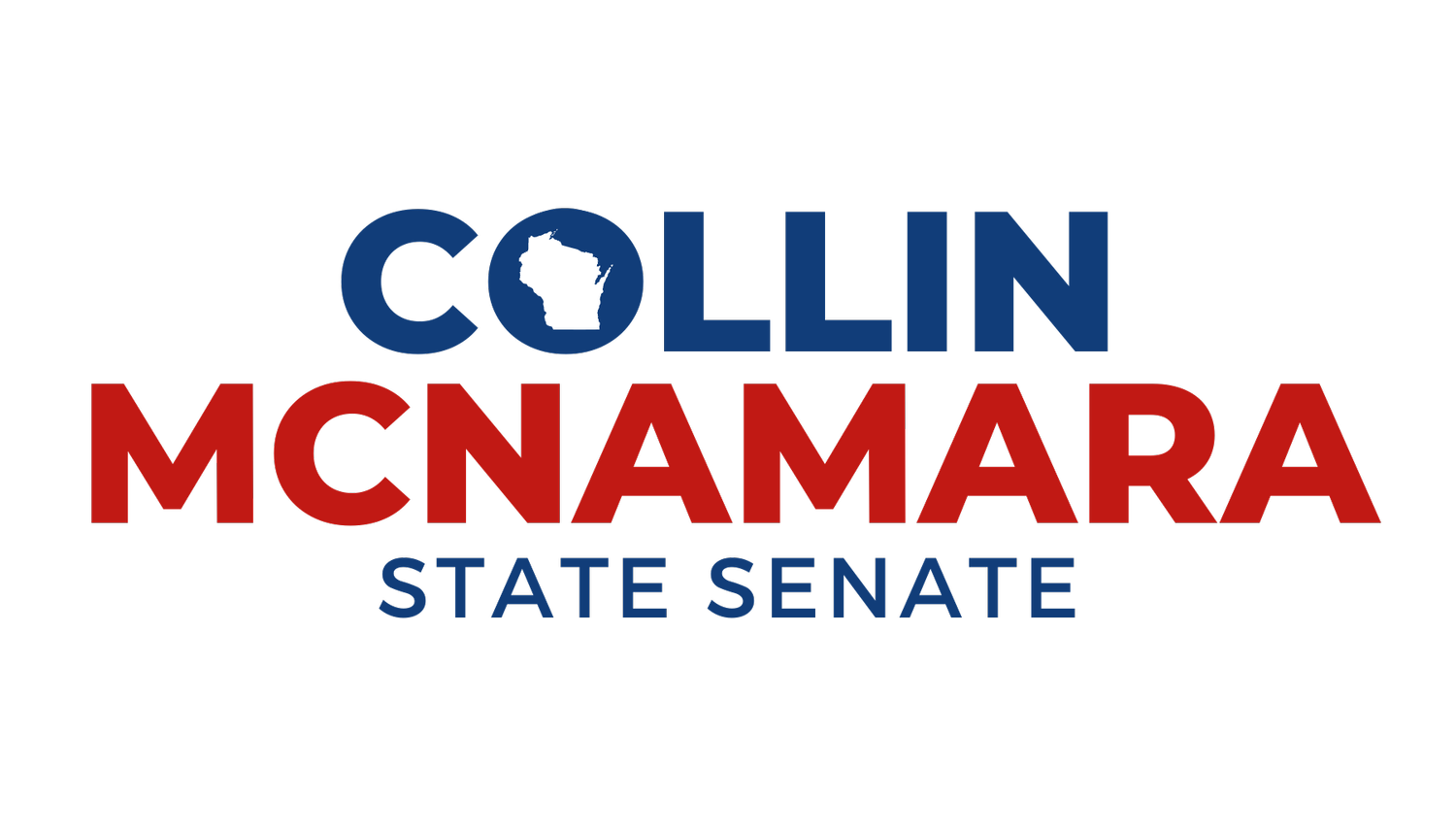Wisconsin Driven
My priorities have been shaped by Wisconsin values, my experiences, and the people I've met while running to be your District 24 Senator. We know Madison needs to break away from political gridlock and focus on making our lives better, more affordable, and freer. From healthcare access to lowering everyday costs, here's where I stand on the most important issues facing Central Wisconsin.
My Priorities When Elected
-
Wisconsinites are deeply concerned about the rising cost of living. What should state lawmakers do to address inflation and wages?
Working retail customer service, I see first hand how grocery costs impact peoples’ lives. I know this as someone who works full time, and who still sometimes has to make the choice to leave something behind at the grocery store or pay bills one at a time. I am a working class guy from a small town, and I will be a Senator who knows what it is like to live on Main Street.
We need to raise wages in the State of Wisconsin, including bringing the minimum wage up to $15/hr and then adjust to inflation from there. Additionally, provide the middle class with tax relief. We can do this by implementing new tax brackets that are taxed progressively so no one person is disproportionately impacted by taxes but so we all have the ability to achieve our own American Dream.
-
Wisconsinites are concerned about the cost, accessibility and quality of health care. What should state lawmakers do to address those issues?
Health care is deeply personal to every person and it is time for our leaders in Madison to stop playing politics with the health and safety of the people of Wisconsin. When I am in the Senate I will vote to accept the Medicaid expansion money that is being offered to us which would in turn expand access and coverage to thousands of wisconsinites. Next, would be to use some of the revenue surplus to give grants to local hospitals, especially in rural areas to help cover the expenses of operations. I will also push for price transparency for treatments and pharmaceutical prescriptions. Important to this issue is to also ensure that we expand access to affordable preventative care. It is 2024, we should be able to get people treated before they have a life threatening illness, or before they can’t talk out of their mouth anymore because of a tooth problem, or after they can’t walk because of a bad knee. No one should have to choose between their health or putting food on the table. Finally, I will fight for those with pre-existing health conditions, because we are not going back to the days where someone could be discriminated against.
-
If elected, what changes or policies would you support to improve K-12 education in the state?
I want to start by saying it is a shame that current legislators have chosen to play politics rather than fund our future. We had the largest revenue surplus in our state’s history and it is sitting in the bank down in Madison because our leaders can’t agree on how to spend it. This inaction is forcing school districts to ask local tax payers to raise their own taxes to the point where they are faced with the impossible decision between supporting their school or putting food on the table. Enough is enough. If we release these funds in smart one-time investments, such as grants or money to school districts we will be able to get communities moving forward again. As I travel around the district and meet with educators, school administrators, community members, and students I get to hear first hand accounts of how the state is not living up to its end of the bargain of providing the resources necessary for our schools. I know the pride of seeing the stands full on a Friday night cheering on the home team, it is time for the state to be as proud of our schools as our communities are.
-
What role should state government play in addressing climate change and improving water quality?
The State plays a critical role in making sure local communities have the resources they need to address the demands of climate change. The Legislature must be willing to enact policy directives that are based on science and reason, not political gamesmanship. And, once they set the policy, they need to take a step back and allow subject area experts to make the rules necessary to achieve their policy. When it comes to water quality, we have made great progress in providing resources to clean up wells. And now is the time to focus on private well access as well by releasing the money of the PFAS Trust Fund to the targeted communities, then develop a grant program for rural households with private wells. We must also establish stronger controls on CAFO manure storage and nutrient management plans.
-
What changes to state abortion law would you support?
I support the repeal of Wisconsin’s 1849 abortion ban. I’ll be honest, I was raised to believe that a person’s medical decisions are some of the most deeply personal and private decisions they will be faced with in their life. It is not my place, and it is no politician’s place to tell you what you can or cannot do with your body. The rhetoric around the issue of abortion is deeply troubling, because at the end of the day this issue boils down to one simple question: do we trust women to make decisions about their own body? I do. I support privacy. I support medical freedom.



